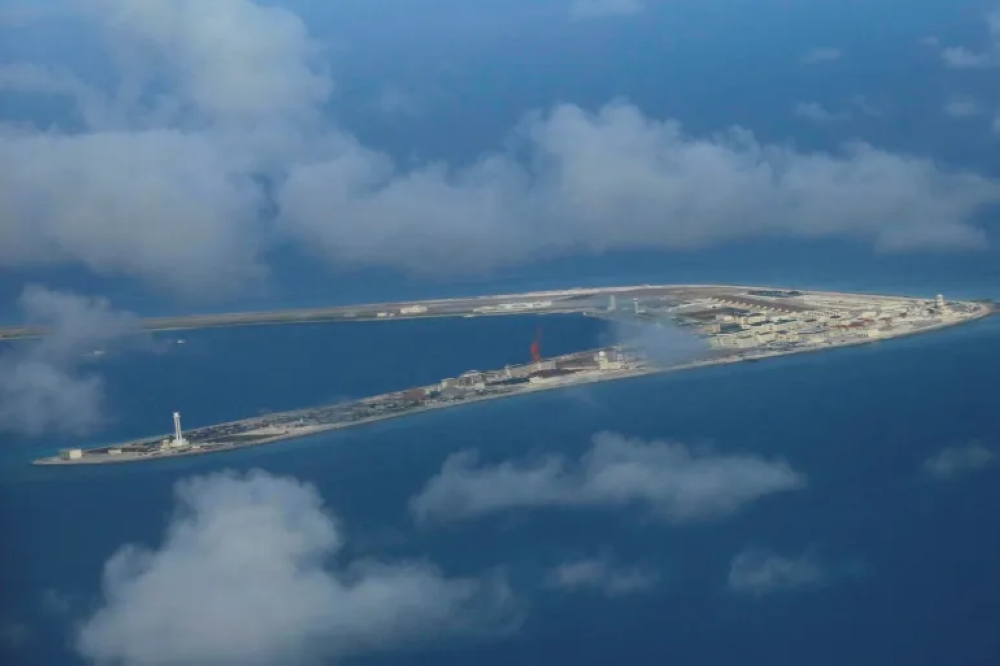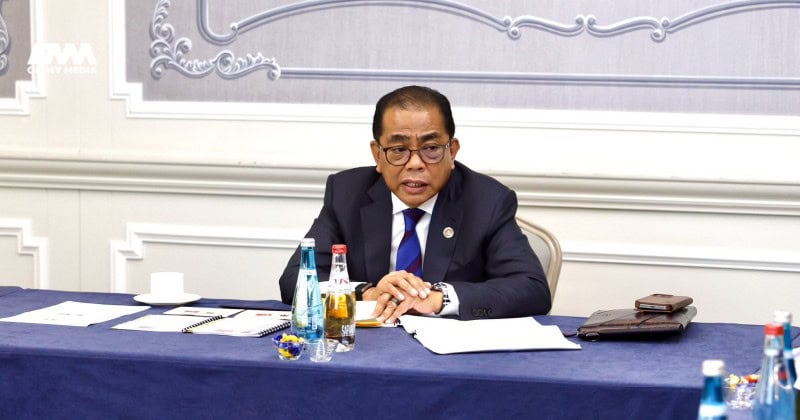AUGUST 24 — Recent revelations from the Center for Strategic and International Studies (CSIS) highlight a seismic shift in the dynamics of territorial expansion in the South China Sea.
Vietnam, long overshadowed by China’s extensive land reclamation campaign, has rapidly accelerated its own island-building efforts in the disputed Spratly Islands.
As of March 2025, Vietnam had generated roughly 70 per cent as much artificial land as China in the Spratlys — and may soon surpass Beijing’s scale of reclamation.
This pivot by Vietnam — including dredging and landfill activity on eight fresh features like Alison, Collins, and East Reef, as well as expansions at Amboyna Cay and West Reef — marks a new chapter in the regional contest over sovereignty and strategic advantage. With munitions storage and infrastructure sprouting even where runways may not be viable, the stakes have clearly escalated.

An aerial view of the China-occupied Subi Reef at the Spratly Islands in the disputed South China Sea. — Reuters pic
China’s aggressive reclamation — a campaign often dubbed the “Great Wall of Sand” — saw massive artificial islands crowned with runways, ports, and military fortifications across Mischief, Subi, and Fiery Cross Reefs from 2013 to 2016.
These constructions brought logistical dominance and strategic depth to China’s claims, enabling persistent power projection across the waterway.
But Vietnam’s recent push is no minor echo. Since 2021, the country has transformed previously modest features into more robust outposts.
In 2024 alone, Vietnam added 692 acres — almost as much new land as in the previous two years combined — and since then added another 641 acres, bringing its total to approximately 3,319 acres — nearly 75 per cent of what China has created.
These expansions are far from symbolic.
Coastal harbors, docks, and runways — particularly at Barque Canada Reef, which has ballooned from 238 to 412 acres and could host a 3 km runway — are being built or planned, increasing Vietnam’s ability to patrol, resupply, and possibly deploy larger aircraft.
A ship sailing toward instability
At its core, maritime expansionism in the Spratlys isn’t simply about land. It is about logistics, force posture, and contested sovereignty, all thrusting regional security toward the edge.
Each new reclaimed base reduces ambiguity: claimants entrench themselves physically, raising the cost of any dispute resolution.
When multiple actors — China, Vietnam, the Philippines, Malaysia, and Brunei — engage in such behavior, the risk of miscalculation and unintended conflict escalates.
A confrontation involving even a third party — in Scarborough Shoal or Barque Canada Reef — could rapidly escalate into broader military entanglements. Meanwhile, environmental degradation offers a second, less visible threat. Reclamation smothers reefs, destroying habitats and fisheries vital to regional economies and biodiversity. UNCLOS mandates environmental protection; yet the damage to coral ecosystems from dredging is painstakingly clear.
A third challenge comes at the level of international law.
The 2016 Hague tribunal categorically rejected China’s sweeping maritime claims, yet Beijing’s expansion, now Vietnam, have continued unabated.
Now Vietnam, though a smaller actor, is also pursuing territory in ways that defy the spirit of UNCLOS.
The resulting legal and normative erosion makes cooperative governance — and any meaningful code of conduct — harder to sustain.
Asean and China have long sought a binding Code of Conduct (CoC) to manage South China Sea tensions.
In theory, such a framework would curb militarisation, regulate behavior at sea, and provide mechanisms for crisis de-escalation.
But how effective can a CoC be when expansionism becomes the norm? If Vietnam sees China gaining strategic advantage, Hanoi responds by building further. If China notices Vietnam’s gains, Beijing hardens its hold.
This spiral makes it hard to draw limits — much less enforce them. Without credible compliance, confidence, or neutral enforcement mechanisms, a CoC risks being a veneer — good for optics, but hollow in practice.
To move beyond this cycle, Asean states must rally behind UNCLOS and the 2016 ruling as the bedrock of dispute resolution, reaffirming the principle that marine claims must be settled on law, not land reclamation.
At the same time, claimants should commit to a pause on further land reclamation and militarisation while dialogue continues under Asean frameworks, with external mediation as a possible safety valve.
Transparency should also become the norm: third-party verification, whether through Asean, the UN, or neutral maritime agencies, can ensure that new facilities and expansions are visible to all parties, lowering suspicion and preventing surprise escalation.
For the CoC to be meaningful, it must become binding, with clear prohibitions such as a ban on new runways or permanent weapons depots, and enforcement mechanisms that could include arbitration or graduated sanctions.
Equally crucial are environmental safeguards.
Any activity permitted should include environmental assessments and restoration obligations, recognising that fragile reef ecosystems deserve protection under both UNCLOS and broader biodiversity conventions.
Vietnam’s island-building surge is both a reaction to Chinese expansion and a cause of escalating contestation.
Without restraint, the region drifts further from peace — each added acre symbolising deeper entrenchment and higher stakes.
A Code of Conduct, if forthrightly enforced, could serve as an anchor for stability.
But for it to matter, regional actors must resist the logic of expansionism and embrace cooperative restraint.
Otherwise, the South China Sea risks becoming less secure — not just for ships and economies — but for the fragile balance of regional peace itself.
* Phar Kim Beng, PhD is the Professor of Asean Studies at International Islamic University of Malaysia and Director of Institute of Internationalisation and Asean Studies (IINTAS).
** This is the personal opinion of the writer or publication and does not necessarily represent the views of Malay Mail.






